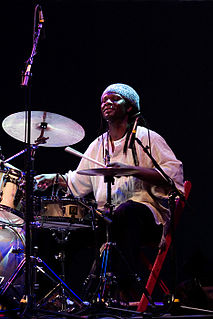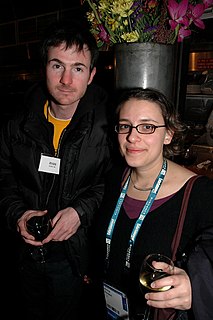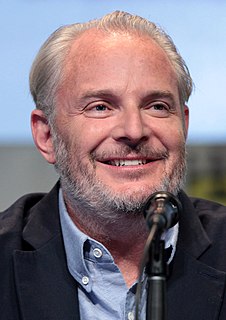A Quote by Steven Spielberg
The creative process is a very collaborative process. I know it might seem that way because so much ink is spilled and the media is obsessed with business and numbers and studios... but filmmakers don't think of it that way. We just go off and we tell our stories. It's the same torture that we adore, it's the same torture that our forefathers endured making movies in the golden era of Hollywood. So, from my perspective it's no different, I'm sure, from the men and women who I admire so much who made the earliest movies.
Quote Topics
Admire
Adore
Because
Business
Collaborative
Creative
Creative Process
Different
Earliest
Endured
Era
Forefathers
Go
Golden
Hollywood
Ink
Just
Know
Made
Making
Making Movies
Media
Men
Men And Women
Might
Movies
Much
Numbers
Obsessed
Off
Our
Perspective
Process
Same
Seem
Spilled
Stories
Studios
Sure
Tell
Think
Torture
Very
Way
Women
Related Quotes
I mean, they clearly have a process of how they go about making their movies, and John Lasseter has been instrumental in implementing that process for all three studios with the Brain Trust and the way we work and the way we break stories and how it's all creative led. There are no executives in the room. So I think all of that is embraced unilaterally. But that's the first time I've heard of that.
It's a tough time for screenwriters right now, because fewer movies are getting made. I'm enjoying television so much. It offers opportunities for writers to be in a writers' room and work their way up. It's somewhat easier because there's more of a community. There are so many screenwriters with incredible stories to tell, so I hope there will be some kind of shift in the business where very few types of movies are now made by the studios. There needs to be different budgets for different audiences; not everything having to be a huge opening weekend.
The model we established was to give creative people complete creative freedom in exchange for betting on themselves, so they work for the minimums you're allowed to work for, and if the movies work in a big way, everyone does very well. If the movies don't, nobody loses too much money. The benefit to doing all the movies low budget is we can tell different types of stories and take creative risks. The Purge would have been irresponsible to do for $20M, but to do it for $3M makes sense.
When I started doing improvise music in Europe, in the beginning I thought the way that Europeans were interpreting the reconstruction of deconstruction of this thing that we call jazz - of course it's different than what Americans do, because Europeans have a different history, a different sensibility and so forth - the nature of the creative process itself it's the same; but what comes from that creative process is different, because you have a different history, you have a different society, different language.
Hollywood is a very male business, and it has in vast portions of it - the whole action movie part of it might as well be the United States Army in 1943 in that the ethics of it are, you know, boot camp and action movies and guns and explosions and all the rest of it, and that - so that means that about 50% of the business is not only pretty much closed off to women, but women don't even wanna be in it!
The earliest influence on me was the movies of the thirties when I was growing up. Those were stories. If you look at them now, you see the development of character and the twists of plot; but essentially they told stories. My mother didn't go to the movies because of a religious promise she made early in her life, and I used to go to movies and come home and tell her the plots of those old Warner Brothers/James Cagney movies, the old romantic love stories. Through these movies that had real characters, I absorbed drama, sense of pacing, and plot.
When you have to cast movies from a producer's standpoint - when you've been on the other side of casting sessions - you just get a completely different perspective on what that process is of getting a job for an actor. You realize how completely impersonal it is. If anything, I think it's made me a lot less sensitive. So much of this is logic and business, and it's got nothing to do with whether people are good or not. Unfortunately, I think that's one of the last things that gets factored in when you're assembling a cast.
The industry has changed in big ways. When I started making movies, the studios were not all owned by huge conglomerates, so the decisions were made in a very different way. Over the years, I've watched both the rise and the decimation and fall of the DVD as a portion of where you could generate revenue from making this kind of content. We've seen this change in the balance sheet on the international side of the ledger; it's now a much bigger percentage than it is on domestic, even though movies would have been previously really domestically driven.






































